|
This morning, I woke up early and drank a cup of tea in front of my Christmas tree while flipping through a book I'd received many years ago. In the Company Of Woman by Grace Bonney showcases advice and insights from 100+ women creatives and entrepreneurs, and this morning, it brought me some much needed inspiration. Buy yourself a copy here.
I then wrote out all the questions each of these great women in the book answered. It was a great reflective exercise to think through these questions and then be able to articulate my own answers, which you can see below. I encourage you to take these questions and create your own answers. C.E. Moriarty Writer, Educator, Entrepreneur 1. What did you want to be when you were a child? I was once shown my pre-school yearbook where, when asked what I wanted to be when I grew up, I responded that I wanted to be “a stranger”. I still don’t know what that means. I also remember wanting to be a veterinarian and help people in some way. 2. Best piece of business advice? Be patient and focus on the task at hand. You will have a lot of distractions trying to pull you off course, but you are responsible for reminding yourself of where you’re going. 3. Favorite thing about your workspace? All my books, my giant drafting table desk, and my dog on the floor. 4. Fear/professional challenge that keeps you up at night? Being behind. I tend to be an anxious person, so my big fear is that everybody else has it all figured out somehow and I’m still struggling. 5. Has learning from a mistake ever led to success? I guess the “mistake” I learned from was staying at a job I hated for too long because I thought it brought security. The realization that I physically cannot subject myself to meaningless, soul-crushing work led me to my dream job and the resolution that I will only do work I’m proud to do. 6. Biggest overall lesson in running your business? If your body is failing because you are not taking care of yourself, you will not be able to run your business. Take care of yourself first and set boundaries. 7. Quotation/saying that inspires/motivates you to be yourself and do what you love? I love the power of words and find many different quotes inspiring. To pick one from my favorite book: "...many places you would like to see are just off the map and many things you want to know are just out of sight or a little beyond your reach. But someday you'll reach them all, for what you learn today, for no reason at all, will help you discover all the wonderful secrets of tomorrow." - Norton Juster, The Phantom Tollbooth 8. Greatest success/something you’re most proud of in business? I am probably most proud of starting my first business as a sophomore in college. It was my first step well beyond my comfort zone to attempt to bring together the things I cared about in order to help others. It also resulted in a Raymond Von Dran IDEA Award and a Kauffman Entrepreneurship Engagement Fellowship which, at the time, was needed validation that I was on the right track. 9. What does the world need more of? Less of? More intention, less indifference. 10. Woman or women past or present that you admire or look up to? Melinda Gates for her generosity, J.K. Rowling for her imagination, and Maya Angelou for her insights. 11. Personal/professional motto? Watch with glittering eyes… – Roald Dahl I always hope to be curious, in awe of this wonderful world around us, and maintain a sense of innocence. 12. What does success mean to you? I’ve boiled down success to ultimately mean peace of mind. I simply want to be proud of the work I’m doing, get paid enough doing what I love, take care of myself, enjoy the wonderful people and hobbies I’ve surrounded myself with, and know my life is moving perfectly forward. 13. In moments of self-doubt/adversity, how do you build yourself back up? Therapy, tea, tears, and books. I, unfortunately, take a little bit of time to rebound but have gotten more patient with myself when I need some self-care. 14. What would you tell yourself 10-20 years ago that you wish you knew then? Don’t take everything so seriously. Fun does not equal failure. 15. Given $100M, would you run your business differently? Yes, I would say no to small tasks and focus solely on a big passion project. Take some time to travel, write, and self-publish a novel. 16. Top 3 things someone should consider before starting a business?
17. No-fail, go-to when you need inspiration or to get out of a creative rut? Nature, exercise, and books. 18. At what point in your life did you first learn about your field of work? What called you to it? In 2010, I was a sophomore in college when the Haiti Earthquake happened. I was a music major who did not like performing and did not want to teach music, but was fascinated with how the arts could achieve community outcomes. I then organized my creative friends to put on an event and raise money to donate to relief efforts. This was my first introduction to entrepreneurship. 19. The first thing you do every morning to start your day off on the right foot? I try to meditate for 5 minutes and do some writing. It could be creative writing or writing some notes of gratitude. I tend to be inconsistent, but I notice my days start off better when I make the time. 20. What would you do with 3 more hours a day? Read, write, and/or go to the gym. 21. Which of your traits are you most proud of? I’ve grown to love my intensity. I love hard, laugh harder, protect fearlessly, and feel deeply. I used to think it was all too much, but as I got older I realized how much effort I made to water myself down to a version I thought was more digestible to others. I’m proud of the effort I make to better understand myself and the world around me and be more authentic. 22. What tool/object/ritual could you not live without in your workday? My notebook/planner. I’ve had many over the years and feel lost without it. Recently made the switch from Moleskine to Leuchtturm1917 brand. 23. Biggest sacrifice you’ve made in starting/running a business? Starting a business and putting yourself “out there” means you sacrifice the safety of blending in; the anonymity of mediocrity; the lack of ownership or responsibility. 24. What characteristics do you most admire in other creative women? I very much admire those men and women who resist the temptation to overthink and are resilient to any and all factors that might prevent them from creating. 25. Favorite thing to come home to after a long day of work? My family, a stocked pantry and clean dishes so I can cook something delicious, a good book I’m particularly enjoying, and maybe a craft beer. 26. Where were you when you came up with the idea for your business or discovered what you wanted to do? At Syracuse University. 27. What’s the hardest thing about being your own boss that isn’t obvious? Creating and maintaining healthy boundaries. 28. How important is it to share your time with people who do what you do or share your background? I tend to value solitude, but I do see the value in sharing ideas. I don’t think people need to do what I do or share my background because I love learning from people with a wide variety of experiences that are different than my own.
0 Comments
Contrary to the “go BIG or go home” mentality seemingly synonymous with entrepreneurship, Paul Singh poses the question, “How do we teach another 50,000 people in our community to make an extra $1,000 a month with skills they already have?”
Paul and Dana Singh, co-founders of Results Junkies, have traveled the world for the past 10 years with a simple investment philosophy inspired by the book Moneyball. The basic premise is, when evaluating a company, they are not necessarily looking for home run hitters, but for players they can count on, and assist if necessary, to simply get on base. They have invested in about 2,600 of these base runners in undervalued markets across 56 countries, understanding that amazing companies do not solely reside in Silicon Valley, New York City, or Boston and nor should investors. For the past week, Paul and Dana parked their Airstream Classic home at The Tech Garden, Central New York’s premier business incubator, to see what Syracuse, New York has to offer. During their stay, amongst a flurry of other activities, they hold a roundtable discussion on how communities could be building more effective entrepreneurial ecosystems. In addition to challenging the status quo of where great companies are founded and built, the Singh’s call into question the economic development practice of seeking to attract big, “unicorn” employers that will supposedly save the economy. Lookin’ at you, Amazon HQ2. Instead, the conversation centers around how communities can better combat entrepreneurship stereotypes (i.e. must be high risk, wealthy, young, etc.) and provide encouragement and support to everybody who hopes to start a business in order for economies to build a large portfolio of smaller company players. In addition to Results Junkies, many Upstate New York ecosystem players are in attendance for the conversation, including The Tech Garden, GENIUS NY, Upstate Capital, SBA, SBDC, MACNY, Syracuse CoWorks, Syracuse University, and more. Below are some of the myths addressed and outcomes of this conversation. Myth #1: Cost of Entrepreneurial Admission = Your First Born Child and Mental Health Paul started his first business after being fired from AOL in order to make his car payments; a familiar story of entrepreneurship born out of financial necessity. He shares that as both an entrepreneur and investor, he does not have formal training. To be an entrepreneur, you do not need to have an epiphany, tell off your boss, risk your life savings, and hope it works out. Contrary to popular belief, entrepreneurs are actually very good at risk mitigation. Keep your job as a security anchor, but start that side hustle. In the age of the gig economy, the question to ask is how communities can make it as easy as possible to take the first step. Myth #2: The Highly Ambitious Reside Exclusively on the Coasts of the US Ambition is equally distributed across the country. There was a time when economic ability and output directly correlated to your physical location. however, today the ambition and success born out of that high ambition is not reserved for the East or West Coast metropolises. Both Paul and Dana build and sold successful businesses from small communities in Virginia. In Upstate New York, we see the constant stream of graduates from our top higher education institutions rush to New York City, Boston, LA, or San Francisco under the simple assumption that that is where ambitious people must go in order to experience success. Cities across the US should now improve how they tell their success stories, and leverage that story to retain talent. Once retained, there is still an opportunity to teach people how to hustle and develop other functional skills. Myth #3: Adults are a Lost Cause so Just Focus on the Next Generation Investing the time to educate and train our youth to take control of their economic outcomes is a crucial, long-term play for our society and economy. However, in the short term, communities need to develop more on-ramps for adults. Adults have existing experiences and skills that they can monetize more immediately. They need the opportunity to develop more technical skills and understand how they can employ technology to further themselves and their businesses. For example, teaching a bricklayer or plumber how to use digital growth hacks, like Facebook ads, to increase their sales pipelines. Young people may have been brought up on technology, but many have lot to learn when it comes to emotional, social, and communication skills. Myth #4: We Have the Internet. If You’re Not Succeeding, You’re Not Trying. Success is at the intersection of what you’re good at, what you like to do, and what a lot of people might want. Unfortunately, our education system and society fails to teach the skills required to know these things. People are not taught and rarely practice the self-awareness needed to know what they are good at or what they like to do. Why? Because it is much easier to continue meeting expectations than figure it out. This ability to understand and meet expectations is what successful students and employees are built on. Finally, without an understanding of ourselves, it is very difficult to be empathetic and intuitive enough to understand what others might want. In addition, there is an assumption in a more holistically connected world that everybody has access to everybody else. However, there are communities where the connection and infrastructure still doesn’t exist. Yes, some places still don’t even have WIFI. Therefore, there is still a need to provide inclusive opportunities for people to connect. Moral of the Story Paul Singh shares that English is the only language that the word for entrepreneurship is a noun. In every other language, it is a verb. Verbs require action. Our entrepreneurial ecosystems should be built around getting as many people as possible into the game. Moneyball suggests that winning is a numbers game, and perhaps this applies to our cities as well. To empower another 50,000 people to earn just $1,000 more a month for themselves, the Upstate New York entrepreneurial ecosystem can focus on: 1. Educating people that entrepreneurship does not require immense risk and can be done in conjunction with their existing jobs, 2. More effectively celebrate and promote its success stories to retain talent 3. Offer technical training to adults, and 4. Ensure that there are inclusive opportunities to connect all aspiring entrepreneurs with peers, prospective mentors, partners, and investors Yet another shining example of my coolheadedness in the face of a crisis was brought to you by "an acute onset of episodic ataxia" in my dog last night. In other words, Liam had a moment where he was stumbling and unable to stand, and then proceeded to get sick... and I LOST. MY. SHIT. Without any previous dog experience, I've had breakdowns with all of his firsts (i.e. dog sneeze, throw up, etc.) and I must applaud my veterinarian's I'm sure practiced lack of judgement or impatience. However, this particular episode took place at 9:30 PM, so I wasn't sure if the emergency vet clinic could handle the tears and endless questions that Dr. Downing, Liam's primary vet, has grown accustomed to. Oddly, if somebody else is having a crisis, my brain goes into full problem solving mode and I typically am a good person to have around. When it's my crisis, I'm a useless pile of emotions and irrationality.
So into the car we went, and at a modified speed limit, we met my boyfriend at the emergency clinic. En route was the expected pleading with higher powers as my dog sat on my lap, tail wagging, excited for wherever we were going. Upon arrival, my boyfriend was greeted by an excited and seemingly fine dog in all his cuteness, and his blotchy, red faced girlfriend still crying in an over sized t-shirt, messy bun, and flip flops. Luckily for everybody, due to the speed of events, I did not have time to Google Liam's symptoms, so I could not bust through the doors with my catastrophic, self-diagnosis and demand he be seen immediately. While we waited to be seen, I quietly wept over my dog while sitting on the floor in a variety of animal fluids and fur, hummed "Baby Mine" to Liam with his head on my lap because I thought it would comfort him and it added nicely to the drama of the evening, and repeatedly sent my boyfriend to get me tissues because my nose was running from all the weeping and it was impacting my humming.
Anyway, we finally saw the vet who answered my questions and provided a couple potential explanations for the episode. After grilling her with questions to the same or greater extent as a doctoral thesis defense, we ended up going home around midnight. Liam seems to be doing fine, but will not enjoy the blood work we have to do with his primary veterinarian later today. If you read my post, "Even My Dog Has Anxiety" you would know that my dog is very important to me. At a different time, I might be embarrassed by all the tears and panic a different kind of person might not experience in this situation. At this point in my life, I'm just grateful have something I care so much about, and anybody who judges me for reacting strongly can shove off. On your way, robots.
Thank you to the veterinarians who deal with patient parents like me all the time and keep our beloved pets healthy. <3 I used to be afraid of blowing my nose in front of my boyfriend. In my head, it threatened to deteriorate the Disney princess mirage I've falsely built up in my own mind. I'm not sure why the mismatched socks, propensity for cheeseburgers and tears, and untidy apartment seemed right on brand, but when I got sick, I did everything to avoid validating to him that I had snot I needed to clear from my head like everyone else. We laugh about it now. I still get anxious wondering if he can hear me pee through the door, but it's all a work in progress. This past weekend, I made a dinner so horrifyingly gross, that my brain literally played out the break up in my mind. It told me that my inability to cook, despite the many other very successful meals I've made, translated to my inadequacy across the board. My boyfriend, being the appreciative delight he is, choked down some of it before claiming he was full. I took two bites, was well aware it was awful, pushed my bowl away, and spent the remainder of my time trying to ignore it so I wouldn't have to face my own shame. If there are any Westworld fans - I'm the robot that claims "It doesn't look like anything to me," when something comes to my awareness that I was not programmed to cope with. I wanted this gross bowl of food in front of me to disappear so I didn't have to acknowledge it. I am not well programmed to deal with failure. For a long time, I was the person who argued against anybody who tried to convince me that "people make mistakes" or that I "shouldn't be afraid to fail". Blasphemy! Failure is terrifying. My obliviously imperfect self genuinely felt, and may or may not still feel, that if I tried hard enough, perfection was achievable. Wanting to be liquefied by my own embarrassment over a crappy dinner so I could simply absorb into my couch and disappear, perfectly illustrates that my struggle with perfectionism is far from over.
I am that woman who wants to have it all - great career, ideal family, physically fit, wealthy, fulfilling hobbies, altruistic, and well loved. Currently, I'm chubby, poor, and living alone with my dog in a 500 square foot apartment, so we have a ways to go. The good news is, as a millennial, the world does not have high hopes for my success, so that's something. I feel so many people who experience a failure, whether it is something as trivial as a failed attempt at dinner or as substantial as losing a job or relationship, equate that temporary failure to a permanent, innate character flaw in those moments. Unfortunately, the pursuit of your best life requires accepting that at some point you'll make the dinner that gives your boyfriend such a stomach ache, he'll wonder if he's been poisoned. Since by now, I can feel how eager you all are to learn about my recipe, I'll start by saying that mistake number one was attempting to make a healthy version of pasta bolognese. I used black bean pasta and veggie marinara with my ground beef. The kill shot that decided the fate of this meal was cooking the "pasta" the rest of the way in the sauce. For real pasta, this is the play to make as the pasta absorbs a lot of the flavor while finishing cooking. With this bullshit pasta, this was the point where my bolognese sauce took on a blackish hue and seized into a cement, dog food-esque texture. Brutal. Moral of the story - carbs never embarrassed me like this. I'm sticking to real pasta. My dog, Liam, and I have been battling anxiety together for almost 3 years. For anybody who has seen the movie Coco, and somehow didn't expatriate yourself to a cave to live out your days contributing to the sea with your tears, and decided instead to maintain access to technology in order to read this... Liam is my spirit guide. If you have not seen Coco yet, it's a tearjerker. Bring tissues. And your therapist if they're willing. I adopted Liam from Helping Hounds Dog Rescue on July 11, 2015, at the height of my quarter-life crisis, and after my physician prescribed me Xanax and a pet after another tearful outburst in her office. I was 25, on the awkward edge of almost single, hated my call center job, and was bombarded by well meaning friends and family with every reason why getting a dog was a terrible idea. I didn't care. In hindsight, if you have to pay your dogs adoption fees on a credit card because you only make $30K a year, you're probably not in a good financial position for said dog. How could you have known that every vet appointment would cost you approximately one car payment? Or that he would never play with the pile of toys you bought him because he's afraid of them? Or that while your human body was running on $1 cheeseburgers, you'd have no problem serving him Blue Buffalo's Life Protection Formula Chicken and Brown Rice with LifeSource Bits to the tune of about $50 a bag? That's true love. He was and is worth every penny and minute spent on him. He is the best thing I've ever done for myself and my mental health. You'd spend $50 a bag on this face too. Here he is eating his feelings in ice cream, while somehow still looking worried about something, just like his Mom. He was found in a drainage ditch in Texas before making his way into and out of a high-kill shelter, into a Texas foster home, and finally up to New York to be put up for adoption. I adopted him before he even got here. I saw his picture, took one look at his glorious, old man eyebrows, and called to say I wanted him. On the phone, they told me if I was looking for a playful, exuberant puppy, I did not choose the right one. They told me he was a nervous wreck and very anxious. I assured them, I was too. Even in dogs, being anxious is considered a deficiency. As if we anxious bitches are less adoptable because we won't jump up and lick your face. I came to find out he also had worms, but that's completely besides the point. The morning after he arrived from Texas, I showed up a half-hour before Helping Hounds opened. I pressed my nose to the glass like that obnoxious customer who hopes if a staff person sees them, they'll decide to open the store a few minutes early, even though we all know that staff person wants to spit the scalding coffee they didn't get to finish into our face. Helping Hounds did not open early, and the staff enjoyed their coffees at their leisure as I was having a conniption in their parking lot. When the doors finally opened, a woman emerged and asked if I was Caitlin. They must have somehow made the connection that the high strung woman on the phone, who called 3 times in the last week to ensure her dog was still coming and they weren't going to give him away to somebody else, was the same woman who would show up a half hour early. I said yes. They told me my dog was too nervous to leave his crate or walk out to me, so they would have to go get him and carry him out. My heart broke. When she returned, my dog in her arms, his tail was so far between his legs in fear I thought it might come out of his nose, it was love at first site. Once all the paperwork was signed, and he was officially mine, I proceeded to drive at a literal 15 miles per hour home, afraid if I drove too fast he might disappear. We made it home, and he now spends his time hiding beneath his eyebrows, snuggling, giving staunch side eyes, pouting when he needs to poop, falling asleep on me as I read or play music, and not playing with balls. He is, however, the fastest dog alive and loves to run.
We're still anxious messes, though both of us are showing significant signs of progress. For example, while there is not an aggressive bone in his fluffy body, in the past year he's discovered his inner wolf. Now, if you come up my stairs too quickly, or come near me when I'm sleeping he feels brave enough to growl and bark. After a short courtship of treats, Liam now enjoys a genuine, mutual adoration with my boyfriend and is showing more trust in people. Sometimes, he eats grass and growls at the refrigerator. I eat everything else and growl at people. We are two peas in a pod. All of this is to say, if you can (and are not an irresponsible garbage person), I highly recommend a pet for those suffering from anxiety or depression. Especially a dog. If I wanted to spend my day in bed, this fluff reminded me that I needed to go outside, at least long enough for him to go pee. And once I was there, in the fresh air and sunshine, a lot of the time I didn't crawl back into bed. If I felt embarrassed for needing to cry, yet again, Liam reminded me that dogs love licking your salty face afterwards and that our angsty loss is their salty gain, and they love you for it. Dogs are better than people. And in my case, I seriously wonder who the hell saved who. Cheers to you, Liam <3 There are Olympians, titans of industry, philanthropists, scholars...individuals who push boundaries and themselves to accomplish exceptional things. Yet, the most impressive individuals, those who leave me in awe, are those who don't require all of the sleep just to function. They are the narwhals among us who can genuinely claim they are "full of energy" or "not tired". I can't remember the last time I didn't feel as though I could sleep for approximately 2 weeks. I have never pulled an all nighter. Caffeine is powerless. I don't just get sleepy, I'm borderline narcoleptic. I require naps and am prone to tantrums and bouts of elevated anxiety when overtired. I, basically, never outgrew my infant bedtime of 7 PM. If it's a special occasion, I can stay up to 8 PM and eat ice cream after dinner. In other words, I am this dog: Hypochondriacs beware: if you attempt to Google fatigue as a symptom you will find yourself in a black hole of diagnoses from thyroid disease, to anemia, to chronic fatigue syndrome, and then the more obvious depression. You could also simply be getting a cold or are not enough quality sleep. Doctors have tested me for mono repeatedly or blamed the Lyme Disease I had earlier in my life as the culprit. After multiple negative test results, the conclusion is simply that I must live my life as a sleepy bear. However, I don't get to hibernate because I have to pay bills, which is bullshit. I used to get mad at myself for being tired all the time. I used to get upset when I was compared to Prince Valium in Mel Brooks's Spaceballs movie, because who the hell wants to marry somebody who is yawning all the time? Gonna die alone. At least I'm comforted knowing I would end up a crazy dog lady with a baller personal library. I have since accepted my need for more sleep than others as just another part of myself that I have to accept, love, and laugh at. Lone Starr was a much better choice anyway, Princess Vespa. To add another layer of frustration, considering that half of those with depression also have anxiety, they are familiar with the vicious cycle of being too tired to do things, and then feeling anxious because you should be doing more things, and then getting more depressed because your anxiety kept you up so now you're even more tired and feel less capable of doing anything at all. My advice: let yourself be tired. Give yourself permission to spend a full day or weekend sleeping or resting. Rock your messy bun, yoga pants, and no bra with abandon. I'm not sure what the male equivalent is, but I imagine you're on day 2 of the same boxers and sporting a mean cowlick. The less you stress and pressure yourself to not be tired, the more you are able to embrace your destined identity as an old, young person. I'm still waiting for my Benjamin Button moment where, as I age, my behaviors revert and I become a downright night owl, or at least able to stay up past 10 PM.
Some other self-care tips that I've picked up, but have yet to implement in my life even though I know they would help because I'm apparently a self-sabotaging ass, include: 1. Remain hydrated! Apparently drinking water is a big deal. I dunno. 2. Exercise and don't eat like garbage. Allegedly, you'll feel better if you take care of your body. Also avoid extreme diets, don't skip meals, and look for iron rich foods. 3. Limit caffeine. Oops. 4. Look into vitamins. You might not be getting all the vitamins and nutrients you need. Wishing all you fellow sleepy bears some self-compassion and a good nights sleep. zzzZZZzzz
The amygdala in your (emotional) limbic system is responsible for your basic instincts: fight or flight, hunger, sex drive, and fear. As a highly sensitive person (HSP) my amygdala is much more reactive than those less or non-highly sensitive. So when I'm hungry, I've learned it's my ancient brain warning me that if I don't find food soon, I'm going to starve and die (despite the fact that I'm sure my fat reserves could sustain me for a while). MUST SURVIVE. EAT ALL THE THINGS! I then need to soothe my limbic system by transitioning to my (rational) pre-frontal cortex and remind myself that I am not going to starve, and am extremely lucky to have food as a readily available fuel. However, instead of pretending like I'm not going to continue losing to my extremely strong limbic system, I now look for minimally damaging foods to eat my feelings knowing I can forgive myself after. No, this will not be an article recommending you chomp on celery or carrot sticks as though it's never dawned on you. Who has ever binged on a bag of carrots in the throws of an emotional breakdown?!? Anyway, here are a couple of my favorites. Comment and let me know what your guilt free(ish) binge or "cheat" foods are when you need to eat your feelings. Kale does not make my list. Kale is gross. I'd rather be fat than eat kale.
Once again, these are just a couple of my go to items I somewhat guiltlessly enjoy whether I'm eating my feelings or simply in a snacky mood. Once again, I would love to hear what your top healthy snacks are. Comment below or email me at [email protected]!
"I wish I could bake a cake filled with rainbows and smiles and everyone would eat and be happy..." Only within the past couple years have I realized how much damage overthinking can cause in many aspects of life. I've spent a lot of time and effort to understand and battle my own overthinking, and want to discuss the impacts and potential solutions as it relates to innovators and entrepreneurs.
Spoiler: it negatively impacts your ability to be creative or innovative, because it tends to paralyze the afflicted into inaction. And as we know: "Action is the foundational key to all success." - Pablo Picasso Perhaps hypocritically, overthinking does have some benefits (or so I tell myself). Overthinkers are typically very good divergent thinkers; able to identify multiple solutions to solve problems. We are also good at analyzing and identifying potential opportunities and threats, which help us strategize. However, more often than not, fostering our overthinking habits simply creates negative thoughts and anxiety, which is why it is time to confront your overthinking. Impact As an innovator, overthinking might manifest itself in a couple ways: 1.) You question your abilities, so you don't bother creating or taking any risks because research and planning is much safer 2.) You do bother, but end up focusing on perfecting your product or service and never launch, sell, or get it to your customers, because you feel the result could never be good enough 3.) You find the courage to create and go to market, but any criticism or setback makes you want to quit all together For many, it's a combination of all three. Outside influences can impact or motivate, causing you to fluctuate between them. The Catch-22 of all this: there is plenty of research indicating that the worrying overthinkers have the highest potential to be creative (aka innovative). As a result, having such a creative imagination makes us prone to mentally conjure thoughts that are daunting and exacerbate our insecurities. Understandably, it's difficult to express ourselves through art, take a risk starting a business, or be vulnerable enough to share our innovations if our mind tells us that nobody cares, our business will probably fail, we're not good enough, or people will laugh at us. Don't believe these thoughts. Don't let your mind limit your ambitions. Majority of entrepreneurship is putting out a product or service and constantly adapting to new feedback, technology, and experiences. The Lean Startup by Eric Reis is an excellent book that speaks to the importance of putting your business concept out there and being nimble and flexible enough to change quickly. As an overthinker, you will fight against the thoughts that you, your product, or your service isn't ready (Obvious tip: you will never feel ready). You also can't adapt quickly if you second or triple guess yourself or your team. Taking action will always beat out intentions, so the first step is to make sure your mind is not preventing you from beginning to create or getting to market. After that, it's also very important to realize if your overthinking is causing you to be less productive and slower to adapt than you should be. If left unresolved, overthinking will hurt your business. Solutions So if you've admitted to yourself that you are also an over thinker and are unsure how to battle it, here are some suggestions: 1) First, as cliche as it may be, mindful meditation is extremely helpful in strengthening the "observing" part of the mind, which is in contrast to the "thinking" part that is responsible for the constant bombardment of doubts and questions. Other healthy habits like exercise and good nutrition will support your meditation practice. 2) Taking it one step further, if you have a medical professional that offers neurofeedback training, I would highly recommend it. The process trains your brain to more easily transition from the limbic system (emotional, worrying, overthinking) the to the prefrontal cortex (rational, control, decision making). 3) Next, self-awareness is crucial. If you know and celebrate what you are good at, you are more likely to battle thoughts trying to question your value. Oddly enough, I think most of us are in the habit of meeting expectations, but are not aware enough to get to know our own strengths and passions. 4) Finally, the more you are able to fight against the paralysis caused by overthinking to take action, the less your mind can tell you it can't be done. If you are able to push through the initial fear, taking action and executing will actually build the self-confidence necessary to quiet your overthinking mind. Conclusion Overthinking tends to cause unhappiness and anxiety, and paralyzes potentially creative and innovative people into inaction. We must be self-aware to recognize it, deliberately battle negative and unhelpful thoughts, and push through and execute to prove ourselves wrong and shut our minds up. The more comfortable we are in our own skin and proud we are of our strengths, passions, and accomplishments, the more ammo we have to battle the thoughts that tell us we are not good enough or ready to pursue our passions. Bottom line: overthinking can be a disadvantage, but it is far from an insurmountable problem. In the eloquent words of Gary Vaynerchuk, "You're the fucking best... go do shit," and don't let your mind tell you otherwise. |
Archives
December 2018
Categories |

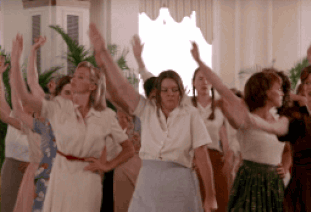

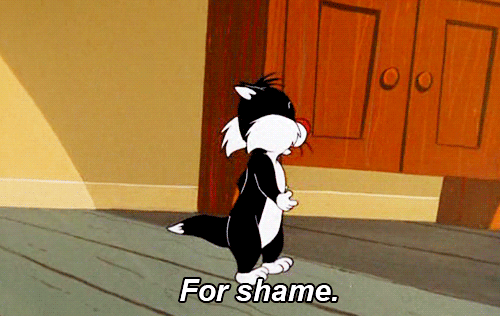
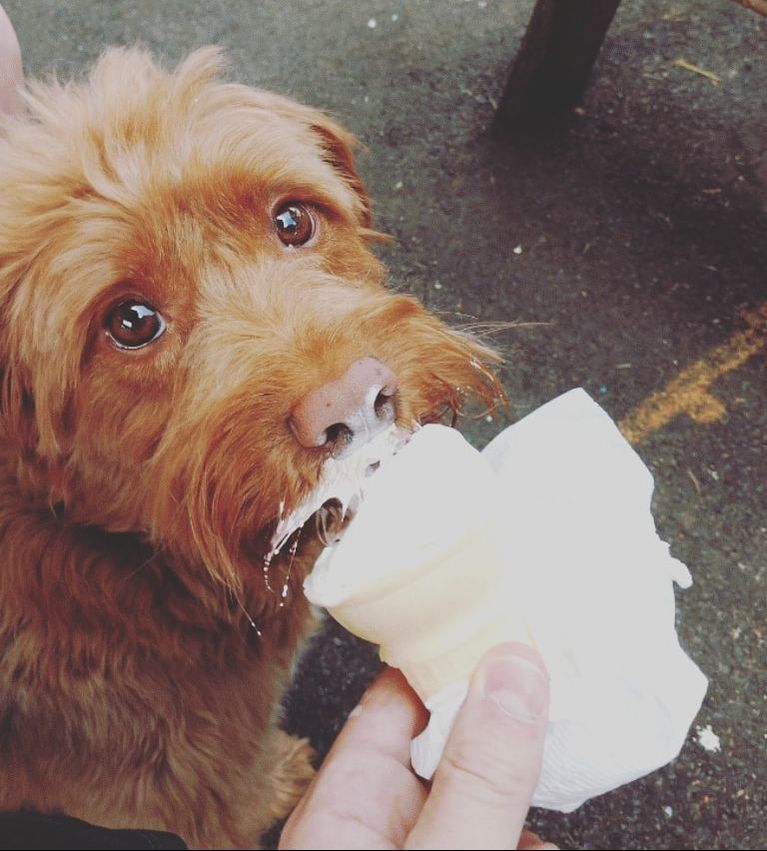
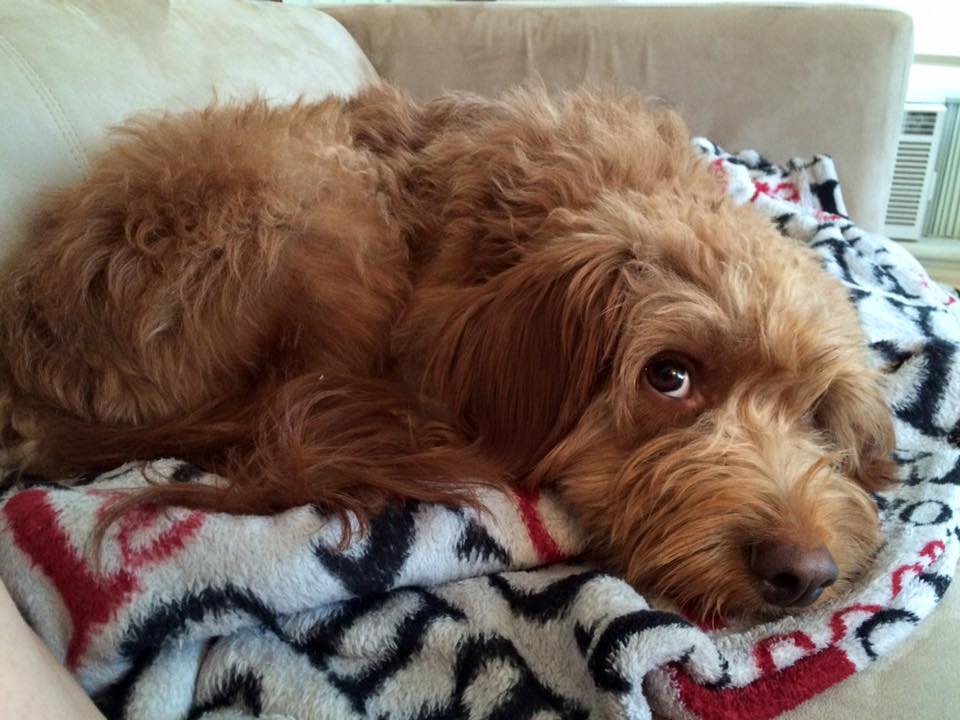
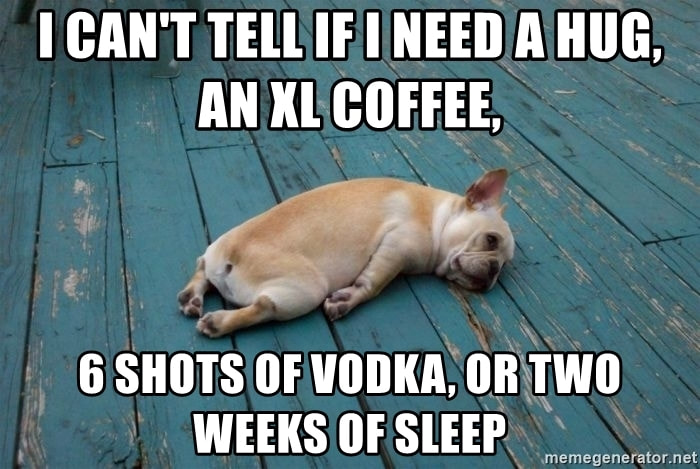
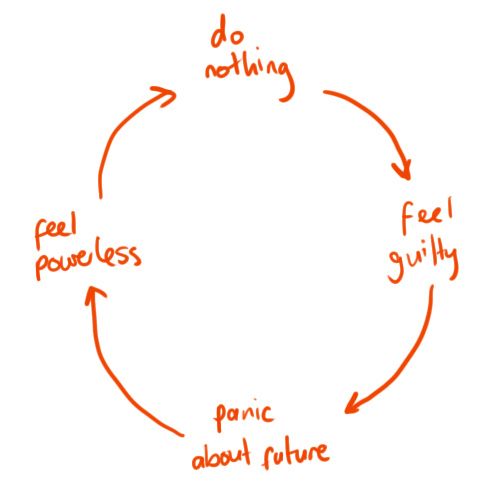
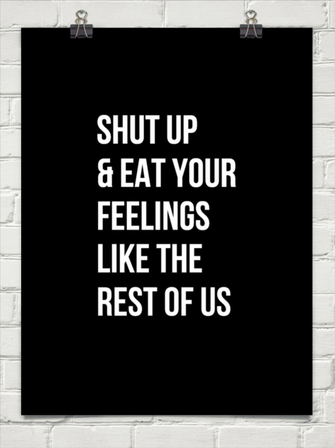
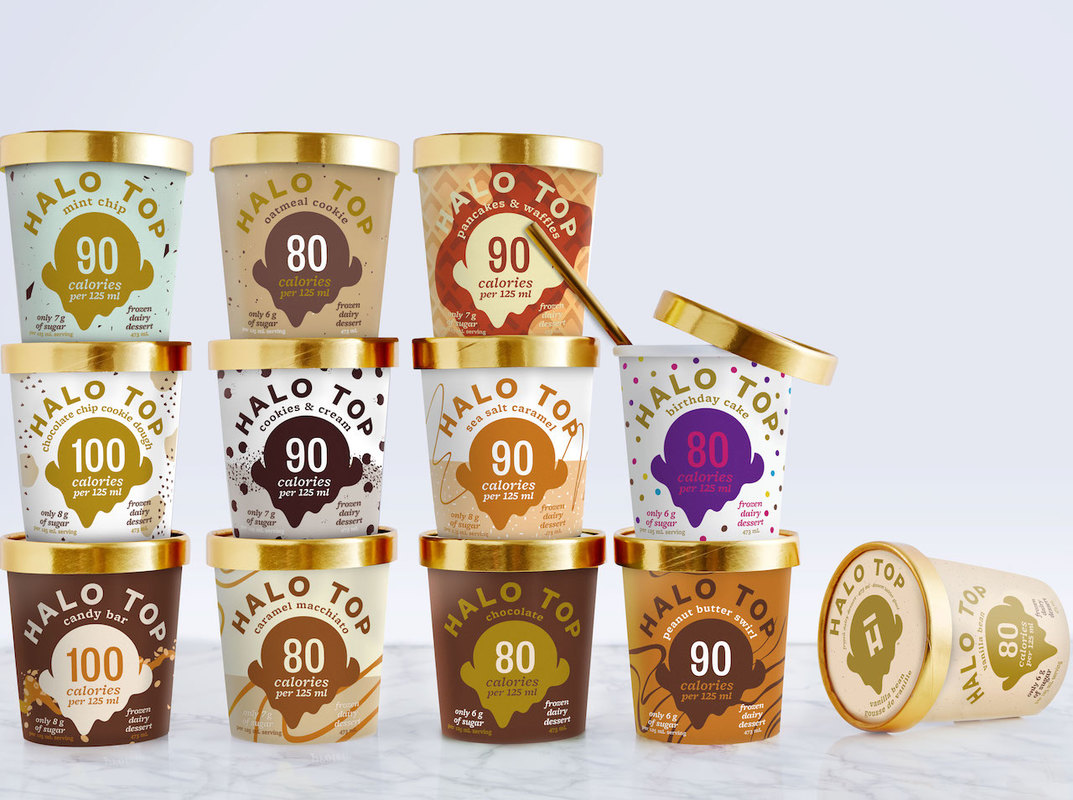
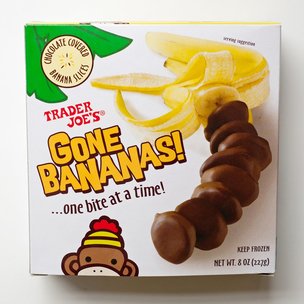
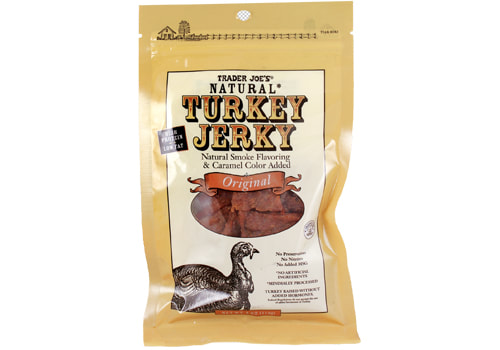
 RSS Feed
RSS Feed
